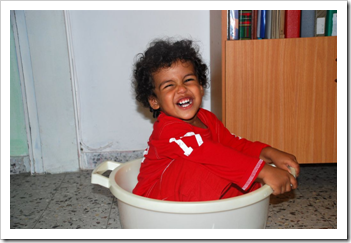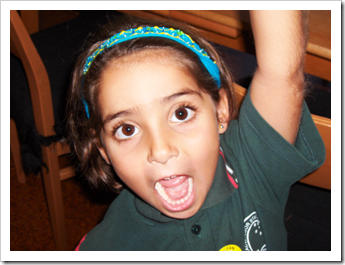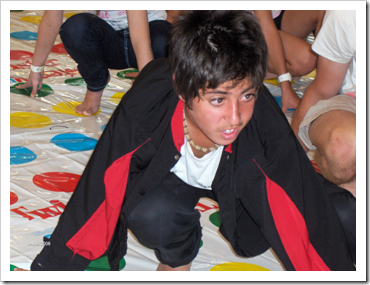
In fact, games are a source of calm and comfort for most. They stimulates the mind and body using a “fun incentive”.
Education in early childhood is very important in building the foundation for happy learning. The early impression children have of learning determines their attitude towards acquiring new knowledge later on in life.
Researchers discovered that pre-teen children who called their learning activities “play” were more successful, happier in school and more socially content at the end of adolescence than those who considered their learning activities “work”.
Children play games for many purposes. For example, games can be used to improve social skills. During games, kids must negotiate, share, relate and connect with others. This helps develop understanding, compassion, empathy, acceptance and trust. Later on, this allows healthy intimacy.
Games can be used to pass time, relax and feel calm. The repetition helps kids “predict” the future and gives them a sense of stability. The “fun” of the games triggers the release of chemicals that heal loneliness, anger, anxiety and depression and the completion of the game helps develop a sense of achievement.
Games can be used to learn. Games stimulate kids’ imagination and curiosity, improve memory and develop persistence, perseverance and creativity. They help develop new skills, experiment with trial and error, learn problem-solving techniques and strengthen existing skills. Games require learning rules, following them and taking advantage of them to suit the needs of the participant, which is a handy skill children require for success.

Above all, playing games is fun and enjoyable, which is one of the most motivating factors for learning in humans. Psychiatrist, researcher and writer Mihaly Csikszentmihalyi described play in his work Flow, The Psychology of Optimal Experience (1990) as a state of flow that requires just “the right balance of challenge and opportunity”. If the game is too hard or too easy, it loses its sense of pleasure and fun.
Maintaining a flow state while playing with others requires all the participants, regardless of age or ability, to feel challenged, but not overwhelmed. Flow is a state where attention, motivation and the situation interact, resulting in a kind of productive harmony. When in “flow”, participants are involved, feel delight, gain clarity, confidence, feel at peace and are not conscious of the passing of time.
Above all, they are highly motivated to keep trying.
Although everyone knows that fun and participation are two major contributing factors in a successful learning process, it is believed that as the years pass and the kids get older, teachers should use less and less play in their teaching and try to instill in children that there is “a time to play, and a time to learn”.
Games and memory
Play reaches the habits most needed for intellectual growth
Bruno Bettelheim
Learning is the acquisition of knowledge and requires good memory. Memory is the process of collecting, sorting, retaining, storing and recalling experiences. There are different types of memory: short-term, medium-term and long-term. Playing games can turn experiences stored in the short-term memory into long-term memory through focused attention, associated ideas and repetition.
What is seemingly an activity that focuses on enjoyment turns out to be an efficient learning experience that remains registered in young children’s minds as fun. Children in game-based learning environments have been shown to develop a positive attitude towards learning and to be more successful in their schooling.
Success experience at Garden of Eden
For children to be willing to keep playing a particular game, it needs to be “the right balance of challenge and opportunity”. They need to succeed. Success, together with a small and yet continuing challenge is an effective source of motivation, which is what sits at the heart of learning.
Teachers who facilitate learning, also need to experience success in their teaching. Unfortunately, finding games to suit every age, special need, group size and learning ability requires considerable effort and/or significant expense.

The Multiplay Game Kit was developed in 1991 as part of the Garden of Eden program. This program was based in Israel, at an early childhood center by the same name. At the heart of the program was a focus on emotional intelligence. Children as young as a 18 months and as old as four years spent their whole day “playing” a set of familiar games that stretched their skills, knowledge and abilities at just the right balance. The games were developed over a two-year span and allowed parents to participate in the learning process without needing any teaching skills or special knowledge.
The simplicity and the ease of using the games allowed educators and parents to align values and deliver the most valuable message any child could get: learning is a game.
Individualized program
Parents’ participation in playing the games at home increased the success rate by giving children more opportunities to practice and succeed. It allowed teachers to develop an individualized program for each child, allowing the flexibility of taking into consideration the age, abilities, interests, strength and weaknesses and even the home structure and parents’ skills and timetable. The use of games allowed each child to progress at his or her own speed and within three months, most students had progressed an average of two years beyond the abilities expected at their age.
We did not want the individual program to make the children feel isolated. Therefore, we formed groups of three or four children who were at a similar level and created group games that allowed them to stretch each other. This added a very important social dimension to their learning.
Who needs homework?

Playing games at home as well as at the center planted the seed that “homework” is fun and enjoyable. This developed the idea of “homeplay”, instead of what later on in their schooling would become “horrible homework”. Children asked to take their games home to repeat the success they experienced. Instead of considering it a “task”, “assignment” or “test”, it was an opportunity for them to experience success and show off their abilities to the people who mattered most to them.
With home play, students did not only do well in their learning but also exceeded expectations.
Over the last 21 years, the Multiplay Game Kit has been a successful tool for teachers and parents in Israel, the United States, Thailand, Singapore and Australia. It has been useful for primary school aged students, high school and even university and adult education students.
The flexibility of the game kit allows teachers to adjust to the subject being taught, the age of the players, the size of the group, the participants’ level of knowledge, their learning abilities, different learning styles and special needs. Above all, it allows learners to progress and learn using the ultimate motivator – fun. It allows young children to adopt the belief that learning is just another game and that life is a playground.
Learn and teach through play,
Ronit











